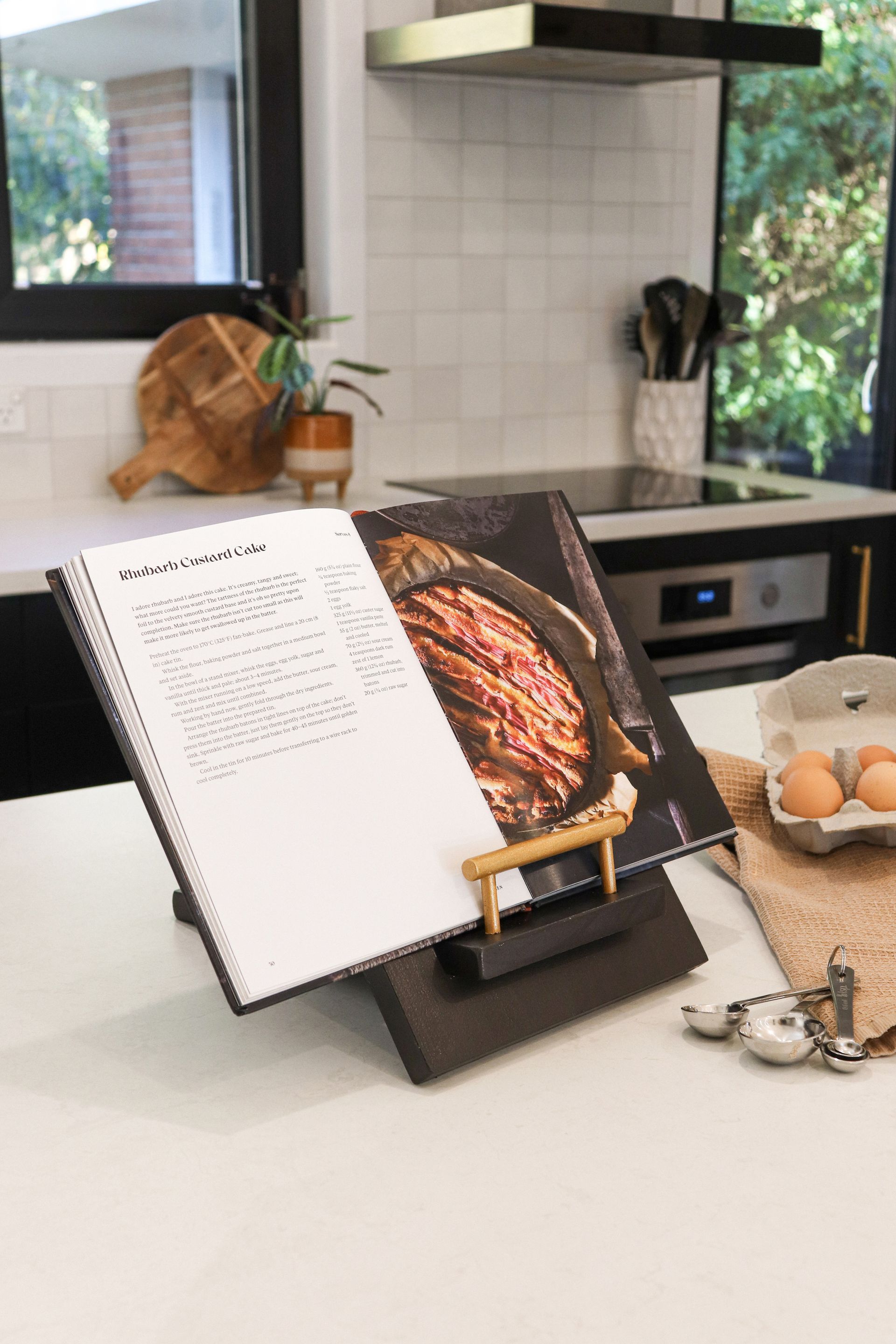From humble beginnings in a tiny kitchen, a 20-something Christchurch couple with big dreams and truckloads of ingenuity have created New Zealand’s first vegan heat-and-eat ready meal manufacturing company.
Those looking for more sustainable and ethical alternatives to pre-made food need not look any further than Christchurch-based Berkano Foods. Founded by young entrepreneurs Britteny Bryan and Nicholas Harlow, in three short years the pair have single-handedly taken New Zealand’s vegan food market by storm with their delicious fully plant-based ready-made meals. Berkano products are now available for online door-to-door deliveries as well as in selected supermarkets nationwide. But it hasn’t all been plain sailing for the couple.
Britteny was halfway through a five-year mechanical engineering degree at the University of Canterbury when she first met Nick, dropped out of university, became vegan and together decided to launch a business. ‘I loved going to university, but it just didn’t vibe with me. I didn’t see the point of finishing a degree that I wasn’t ever going to use,’ she says. ‘Right from early on, we both knew we wanted to start a business, we just didn’t know what business that was.’
After choosing to follow a plant-based diet, Britteny and Nick, then just 21 and 23 years old respectively, soon realised they didn’t know what to eat or even how to cook vegan food. ‘We both love food. We’re both foodies,’ says Britteny. ‘We had a look in the supermarkets and there was nothing available at all to replace what we were eating. There was a real lack of food that we could readily eat and become vegans. At that stage there wasn’t really any vegan dairy or fake meat, the only things available were coconut yoghurt and tofu.’
Seeing a huge gap in the market, it got them thinking. Initially, they thought about opening a café, but with start-up costs prohibitively expensive, they did some research into what was popular in the UK’s vegan food market (a market that’s about three to four years ahead of New Zealand with vegan options) and decided on ready-made meals. ‘Ready meals were really popular over there, so why not give them a go here and see what happens,’ says Nick.
With just their savings, no investors, and little family support, the pair risked everything to get the business off the ground. ‘We completely underestimated how long it would take to get everything in place, from dealing with the council, MPI, private auditors and getting a Custom Food Control Plan to designing the website and advertising. Everything costs and it takes a lot of your time with no money coming in,’ says Britteny.
‘At the start when we first formed this company, our family, our friends, everyone, didn’t understand the idea and couldn’t comprehend what we were doing,’ says Nick. ‘They thought we would go bankrupt in a couple of months.’
And they came close on numerous occasions, but despite five failed bank loan applications and nine months slumming it living in a storage container because they couldn’t afford rent on a house, the pair stuck to their guns using a PledgeMe page to crowd-fund the last $5000 needed to pay for lab testing.
‘I’m not going to sit here and say it hasn’t been hard. We could have given up at any point because of family pressure and start-up costs,’ says Britteny. ‘We had to learn how to cook (using vegan ingredients) and we were starting a business. It was a steep learning curve, neither of us had any skills in running a business or marketing. We had to learn everything along the way.’
After seven months in the pipeline, Berkano Foods (which takes its name from an ancient Germanic rune of continual growth and rebirth) finally launched their inaugural vegan ready-made meals to the public in early 2018. Their idea was simple. ‘It’s not about giving people a whole new way of eating, but giving them old favourites that they know and love, and making them even more delicious, and then they are vegan as well,’ says Nick. ‘We don’t tend to specialise in a type of cuisine. What we tend to do is find family favourites and vegan-ise them. They’re dishes that everyone loves and eats constantly, like vegan versions of butter chicken or Thai green curry.’
But Nick emphasises that vegan-ising our favourite comfort foods doesn’t come at the expense of flavour or quality. Berkano is passionate about lovingly creating food everyone will love, vegan or not, using quality (where possible) locally sourced ingredients.
‘We are vegan, we eat a vegan diet, but we are not extremists. Our main goal as a company is to break up the Western diet so people aren’t consuming as much meat and dairy. We want to help people out and make people’s lives easier. We’re not trying to convert people,’ says Britteny.
The pair’s timing couldn’t have been better, coinciding with the growth in veganism and plant-based diets soaring globally. That, together with the rise of other alternative vegan foods like Sunfed’s Chicken-Free Chicken and Angel Food’s dairy-free cheeses saw Berkano flourish. As word-of-mouth spread, online orders started streaming in.
To begin with, the pair used to cook on the weekend and deliver fresh ready-made meals on Mondays, but they soon realised to up-scale their operation, freezing was the only option moving forward. Specialised equipment was also required. Every cent they earned was ploughed back into the business.
Towards the end of 2018, Nick and Britteny got the call they had been dreaming of when a merchandiser approached them about taking Berkano’s products into supermarkets. It was a major coup for the couple. But in reality, there was a lot of work required to scale up their business to cope with the increased demand. ‘It was like, here was this huge opportunity, but there was a lot to sort out,’ says Britteny. ‘Supermarkets are a numbers game. We needed to be making hundreds of meals at a time. We had to invest in bulk ingredients and packaging. It was eight to nine months before we were ready to go into supermarkets.’
In July 2019, Berkano’s products were launched in-store at St Martins New World. They started with their three most popular online offerings – Sunfed Chicken-Free Chicken Thai Green Curry, Rigatoni Bolognese, and Golden Peanut Satay. They proved an instant hit with customers, with the entire stock selling out in just two days. And it continued to grow from there.
Today, Berkano’s products are sold in supermarkets nationwide. Their online delivery service now includes 30 delicious vegan meal options (split into fitness, gourmet, mains and dessert ranges as well as a range of pantry staples) available for nationwide delivery via courier in insulated chillitainers with icepacks to keep them nice and fresh.
They have also traded in their tiny kitchen for a much larger production facility and have employed extra staff to keep up with the growing workload.
Earlier this year (2020) Nick and Britteny took another monumental step, opening their own ‘little vegan utopia’ onsite offering Berkano’s ready-to-eat pies, sandwiches, housemate cheesecakes and other goodies, as well as other Kiwi businesses’ vegan sweets and treats including a large selection of locally sourced vegan ice cream, sorbet and gelato. Sadly, the café was closed in early March due to the Covid-19 outbreak, but under government Alert Level 4 regulations they were able to continue to produce their supermarket range and home delivery options. They have been working tirelessly to keep up with demand.
Despite their meteoric rise in popularity, Nick and Britteny insist Berkano Foods remains true to its roots. They’re still hands-on in their Ferry Road premises, Nick focusing on the sales and production, while Britteny looks after the finances. Both have consistently been pulling 90–100-hour weeks just to keep the meals flowing since the business started. ‘We’re a vegan company that’s owned and operated by vegans. Part of our drive is to be the best for vegans,’ says Nick.
When they started, their goal was to make Berkano a household name in the vegan market, the same as what Watties is to tomato sauce. And if their first three years in operation are anything to go by, they might just get there. Watch this space!
Words Annie Studholme
The post Plant-based Flavours – Berkano Foods appeared first on latitude Magazine.
Recent stories









